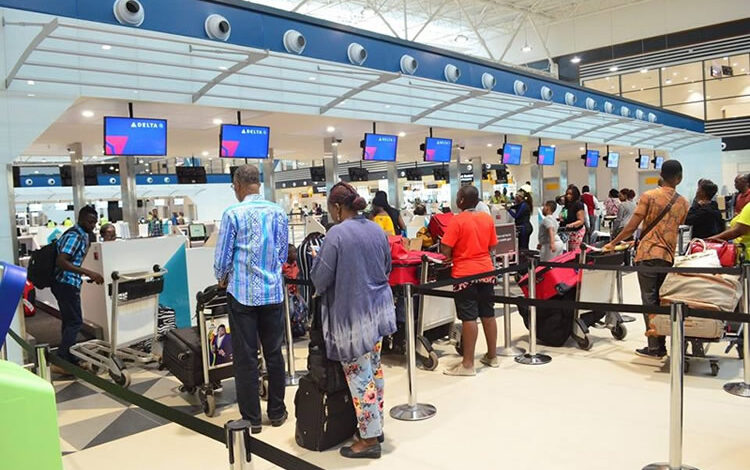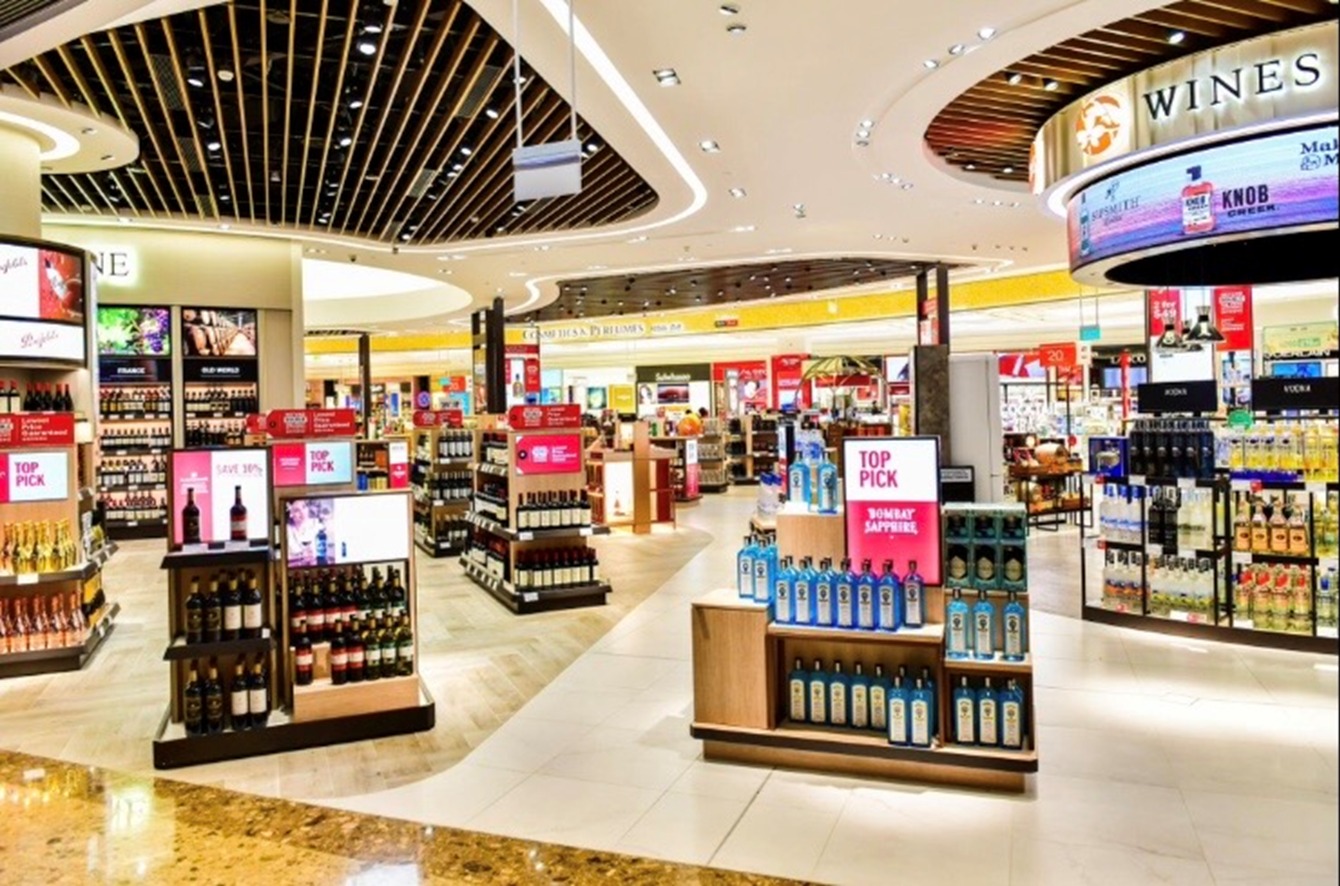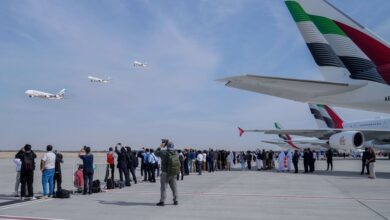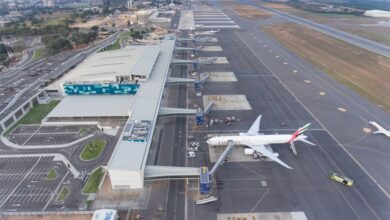Ghana’s Reset Agenda: Aligning GACL’s Operations to Support the 24-Hour Economy

Ghana Airports Company Limited (GACL) was incorporated in 2006 and commenced operations in January 2007 with the specific responsibility for planning, developing, managing and maintaining all airports in Ghana including Kotoka International Airport and five regional airports namely Prempeh I International Airport, Kumasi, Tamale International Airport, Sunyani, Wa and Ho Airports.
GACL is a Private Limited Liability Company, 100% owned by government and set up for commercial purposes.
- Aeronautical Revenue Stream
Aeronautical revenues are derived from charges directly related to airline and passenger operations. These include, but are not limited to:
- Airport Passenger Service Charge (APSC)
- Landing Fees for Aircraft
- Parking Fees for Aircraft
- Navigation and Lighting Fees
- Other related aviation service charges
These revenues are highly regulated, with limited flexibility for rate increases. While vital, they present constraints for growth beyond industry or government-approved limits.

- Non-Aeronautical Revenue Stream
Non-Aeronautical revenues have become a major growth area for modern airports globally. They encompass commercial and real estate activities that complement aviation operations. For GACL, these include:
- Car Park Fees and Operations
- Royalties from Businesses Operating within the Airport Enclave
- Rental Income
- Land Subleases and Ground Rent
Unlike aeronautical revenues, non-aeronautical income provides greater flexibility and scalability. By optimizing the use of airport land and facilities, GACL aims to diversify and strengthen its revenue base.
It is worth noting that during the COVID-19 pandemic, when no flights took off or landed, it was non-aeronautical revenues that sustained airport operations. This underscores their critical importance in ensuring business continuity and resilience.
- Land Administration and Revenue Assurance Measures
In 2024, under the leadership of the Managing Director, Mrs. Yvonne Nana Afriyie Opare, GACL implemented robust measures to enhance accountability and secure revenue from land-related transactions. Key among these were:
- Full Upfront Payment Requirement
All individuals or entities entering land transactions with GACL must now make 100% payment prior to obtaining documentation for registration. For payment plan structures, a contract of sublease will be issued until full payment is completed.
This reform replaces previous arrangements that led to payment defaults and accumulated debts.
Mrs. Opare has also actively pursued the recovery of lands tied to long-standing debts that remained on the company’s books.
As recently as July 2025, GACL reached an agreement with one of its business partners who had an outstanding debt owed for over five years, successfully settled to recover 2.6 acres of land back into the company’s domain.
- Negotiated Pricing and Discount Policies
Land prices are subject to negotiation based on payment terms.
A one-time 100% payment, which offers the best time value of money, may attract a greater discount, whereas staggered payment plans are less likely to benefit from significant discounts.
Ongoing Financial Obligations
The acquisition of land does not end with full payment. Lessees are required to pay:
– Ground Rent (periodic payment for continued use)
– Royalties (5–15%) on gross monthly revenue from businesses operating within the airport enclave.
All agreements and offers are ultimately subject to approval by the GACL Board.

- Maximizing Car Park Revenue and Capacity
Globally, airport car parks are significant sources of non-aeronautical income. GACL recognizes this and has prioritized car park expansion and modernization as part of its strategic growth plan.
The company is currently expanding parking capacity from 513 bays to 2,000 bays.
This initiative will not only decongest existing facilities but also increase revenue generation and support 24-hour operations, creating employment through round-the-clock shifts.
The car park project is therefore both a revenue enhancement and economic development initiative, supporting GACL’s broader vision of sustainability and participation in Ghana’s 24-hour economy.
- Strategic Alignment and Growth Outlook
Modern airports worldwide have demonstrated that while aeronautical revenues remain vital, the greatest growth potential lies in non-aeronautical ventures — including real estate, retail, logistics, and commercial developments within airport zones.
GACL’s strategic focus aligns with these global best practices, ensuring that:
- Its land and asset base is efficiently utilized;
- Revenue assurance mechanisms are strengthened; and Investor and business partnerships are built on transparency, compliance, and mutual growth.
- Global Best Practices and Alignment
In aligning with international airport management standards, GACL has adopted practices consistent with global leaders such as Singapore Changi Airport Group, Dubai Airports, Heathrow Airport Holdings, and the Airports Council International (ACI) guidelines.

The company’s operational strategies reflect the following global best practices:
- Diversification of Revenue Streams
Global Practice:
Top-performing airports derive 40–60% of total revenues from non-aeronautical sources such as retail concessions, car parks, advertising, real estate, and logistics hubs.
GACL Alignment:
GACL is expanding its non-aeronautical portfolio, including land subleases, business royalties, and car park operations, to reduce dependence on regulated aeronautical revenues.
- Integrated Land Use and Real Estate Development
Global Practice:
Airports like Changi (Singapore) and Incheon (Korea) operate aerotropolises — airport cities that integrate commercial, hotel, and industrial spaces to drive local economies.
GACL Alignment:
GACL’s structured approach to land management, upfront payment policies, and renewable subleases ensures transparent, sustainable, and economically productive land use within the airport enclave.
- Revenue Assurance and Financial Governance
Global Practice:
Financially sound airports implement strong revenue protection systems and enforce strict payment terms for tenants and partners to minimize debt exposure.
GACL Alignment:
Through the 2024 Land Administration Reforms, GACL enforces 100% upfront payments and Board-approved transactions to secure income and strengthen financial governance.
- Infrastructure Expansion and Customer Experience
Global Practice:
Airports worldwide continuously invest in capacity expansion and passenger convenience facilities to enhance traveler experience and increase revenue potential.
GACL Alignment:
The car park expansion from 513 to 2,000 bays reflects this commitment – promoting accessibility,
decongestion, and long-term operational efficiency, while supporting Ghana’s 24-hour economy initiative.
Additionally, GACL plans to develop a connecting concourse linking Terminal 2 to Terminal 3. Currently, passengers disembarking at Terminal 2 must go outdoors and walk with luggage or take a vehicle to reach Terminal. The connecting concourse offers retail shops, duty free shops, light bites and lounges along the passengers journey to their boarding gate or to connect at the next terminal. These commercial spaces are well thought out to stay open 24 hours a day, which in turn will offer round the clock jobs to citizens.
- All top airports worldwide have inter-terminal concourses, which allow passengers to move seamlessly between terminals while maintaining safety, comfort, and protection from weather elements — a standard GACL seeks to achieve.
- Sustainability and Economic Impact
Global Practice:
Modern airports serve as economic catalysts, creating jobs, fostering trade, and driving national development.
GACL Alignment: By expanding commercial operations and maintaining 24-hour car park services, GACL contributes directly to job creation, SME growth, and sustainable national economic activity.
- Governance and Transparency
Global Practice:
Leading international airport operators maintain transparent governance structures to attract investment and ensure accountability.
GACL Alignment:
All GACL transactions, leases, and business arrangements are subject to Board approval and guided by internal governance processes that ensure transparency, accountability, and investor confidence.
Summary
Through these strategic alignments, GACL is positioning itself not only as a national infrastructure leader but also as a globally competitive airport operator. The company’s commitment to innovation, transparency, sustainability, and prudent financial management ensures that Ghana’s airports continue to serve as vital gateways to economic growth, tourism, and international trade.




